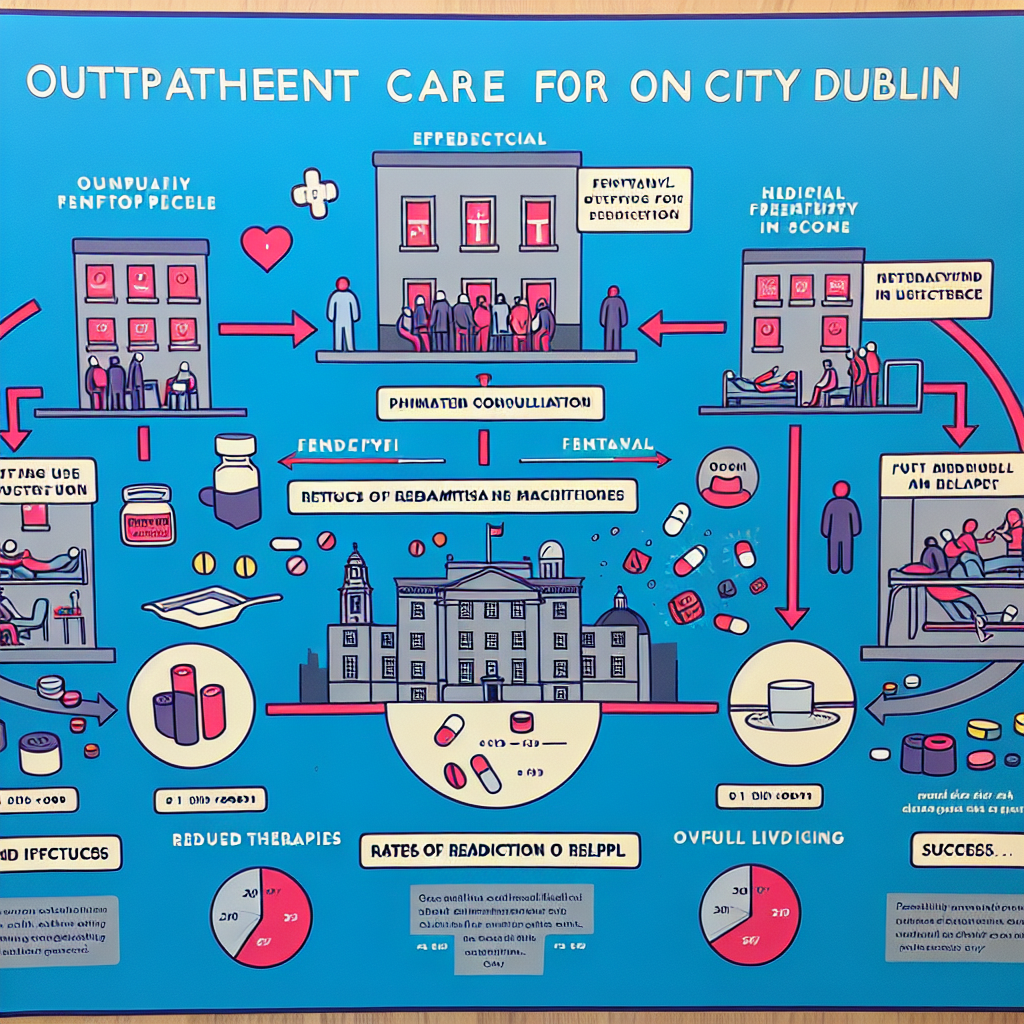-
Table of Contents
“Strength in Unity: The Vital Role of Family in Fentanyl Rehab”
Introduction
The role of family in fentanyl rehab is crucial for the successful recovery of individuals struggling with addiction. Family members provide emotional support, stability, and encouragement, which are essential components in the rehabilitation process. They help create a nurturing environment that fosters healing and growth, while also participating in therapy sessions to address underlying issues and improve communication. By being actively involved, families can better understand the challenges of addiction, reduce the stigma associated with it, and contribute to a comprehensive support system that enhances the effectiveness of treatment programs. Their involvement not only aids in the recovery of the individual but also strengthens familial bonds and promotes long-term sobriety.
Understanding the Impact of Family Support in Fentanyl Rehabilitation
Family support plays a crucial role in the rehabilitation process for individuals struggling with fentanyl addiction. The journey to recovery is often fraught with challenges, and having a strong support system can make a significant difference in the outcome. Understanding the impact of family involvement in fentanyl rehab can inspire hope and provide a clearer path to recovery for those affected.
First and foremost, the presence of family members can offer emotional stability to individuals undergoing treatment. The process of detoxification and rehabilitation can be physically and emotionally taxing, and the comfort of knowing that loved ones are there to provide encouragement can be immensely reassuring. This emotional support can help reduce feelings of isolation and despair, which are common during the early stages of recovery. Moreover, family members can serve as a source of motivation, reminding the individual of the reasons they chose to seek help in the first place.
In addition to emotional support, family involvement can also contribute to the practical aspects of the rehabilitation process. For instance, family members can assist with logistical arrangements, such as transportation to and from treatment centers, managing appointments, and ensuring that the individual adheres to their prescribed treatment plan. This practical assistance can alleviate some of the stress associated with the rehabilitation process, allowing the individual to focus more fully on their recovery.
Furthermore, family members can play a pivotal role in creating a supportive home environment that fosters recovery. This may involve making necessary changes to the home to eliminate triggers or sources of temptation, such as removing substances or paraphernalia associated with drug use. Additionally, family members can help establish routines and healthy habits that promote a drug-free lifestyle. By working together to create a safe and nurturing environment, families can significantly enhance the chances of a successful recovery.
Education and awareness are also critical components of family support in fentanyl rehab. Family members who are well-informed about the nature of addiction and the specific challenges associated with fentanyl use are better equipped to provide effective support. This may involve participating in educational programs, attending support groups, or seeking guidance from healthcare professionals. By gaining a deeper understanding of the addiction and recovery process, family members can offer more empathetic and informed support, which can be incredibly beneficial for the individual in rehab.
Moreover, family involvement in the rehabilitation process can help address underlying issues that may have contributed to the addiction. Family therapy sessions, for example, can provide a platform for open communication and the resolution of conflicts that may have exacerbated the individual’s substance use. By addressing these issues collectively, families can work towards healing and rebuilding trust, which can be instrumental in the recovery process.
It is also important to recognize that family members themselves may need support as they navigate the challenges of having a loved one in rehab. Support groups and counseling services for family members can provide a space for them to share their experiences, gain insights, and receive emotional support. By taking care of their own well-being, family members can be better prepared to offer the sustained support that their loved one needs throughout the recovery journey.
In conclusion, the role of family in fentanyl rehab cannot be overstated. From providing emotional and practical support to creating a conducive home environment and addressing underlying issues, family involvement is integral to the recovery process. By working together and seeking the necessary resources, families can inspire hope and facilitate a successful path to recovery for their loved ones.
Strategies for Families to Aid in Fentanyl Recovery
Family plays a pivotal role in the journey of recovery from fentanyl addiction, offering a foundation of support, love, and understanding that can significantly enhance the rehabilitation process. As individuals grapple with the physical and emotional challenges of overcoming addiction, the presence of a supportive family can make a profound difference. To effectively aid in fentanyl recovery, families can adopt several strategies that foster a nurturing environment conducive to healing and growth.
First and foremost, education is crucial. Families must take the time to understand the nature of fentanyl addiction, its effects on the brain and body, and the complexities of the recovery process. By becoming well-informed, family members can better empathize with their loved one’s struggles and provide more meaningful support. This knowledge also helps in recognizing the signs of relapse and understanding the importance of adhering to treatment plans.
Communication is another vital strategy. Open, honest, and non-judgmental communication can help build trust and create a safe space for the individual in recovery to express their feelings and challenges. Families should encourage their loved ones to share their experiences and listen actively without interrupting or offering unsolicited advice. This approach not only validates the individual’s feelings but also strengthens the familial bond, making the recovery journey less isolating.
Moreover, setting realistic expectations is essential. Recovery from fentanyl addiction is a long-term process that involves setbacks and relapses. Families should understand that progress may be slow and non-linear. By setting achievable goals and celebrating small victories, families can help maintain a positive outlook and motivate their loved ones to stay committed to their recovery.
In addition to emotional support, practical assistance can also play a significant role. This might include helping with daily tasks, such as cooking, cleaning, or managing appointments, which can alleviate some of the stress and allow the individual to focus more on their recovery. Additionally, families can assist in creating a structured and stable environment, which is crucial for someone recovering from addiction. This might involve establishing routines, setting boundaries, and reducing exposure to triggers that could lead to relapse.
Encouraging participation in support groups and therapy is another effective strategy. Family members can attend family therapy sessions, which provide a platform to address underlying issues, improve communication, and develop coping strategies together. Support groups, such as Narcotics Anonymous, offer a community of individuals who understand the challenges of addiction and can provide additional encouragement and accountability.
Furthermore, self-care for family members is equally important. Supporting a loved one through recovery can be emotionally and physically draining. Families should ensure they are also taking care of their own well-being by seeking support, engaging in activities they enjoy, and maintaining their health. By doing so, they can remain strong and resilient, better equipped to support their loved one.
Lastly, fostering a sense of hope and optimism can be incredibly powerful. Families should remind their loved ones that recovery is possible and that they believe in their ability to overcome addiction. Positive reinforcement and encouragement can boost the individual’s self-esteem and determination to succeed.
In conclusion, the role of family in fentanyl rehab is multifaceted and deeply impactful. Through education, communication, realistic expectations, practical assistance, participation in therapy, self-care, and fostering hope, families can create a supportive environment that significantly enhances the recovery process. By standing together, families can help their loved ones navigate the challenging path to sobriety and build a brighter, healthier future.
Q&A
1. **Question:** How can family involvement impact the success of fentanyl rehab?
**Answer:** Family involvement can provide emotional support, improve communication, and create a stable environment, which can significantly enhance the success of fentanyl rehab by fostering a supportive network for the individual in recovery.
2. **Question:** What specific roles can family members play in the fentanyl rehab process?
**Answer:** Family members can participate in therapy sessions, help monitor medication adherence, offer encouragement, and assist in creating a drug-free home environment, all of which are crucial for the individual’s recovery journey.
Conclusion
The role of family in fentanyl rehab is crucial for the success of the recovery process. Families provide emotional support, stability, and encouragement, which are essential for individuals undergoing treatment. They can help in monitoring progress, ensuring adherence to treatment plans, and providing a safe and supportive environment. Additionally, family involvement in therapy sessions can address underlying issues, improve communication, and rebuild trust. Overall, the active participation of family members significantly enhances the effectiveness of fentanyl rehab and contributes to long-term recovery and relapse prevention.



